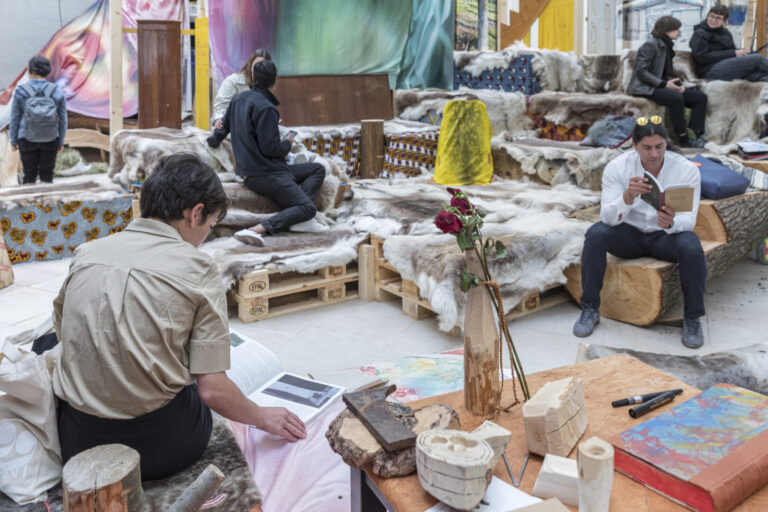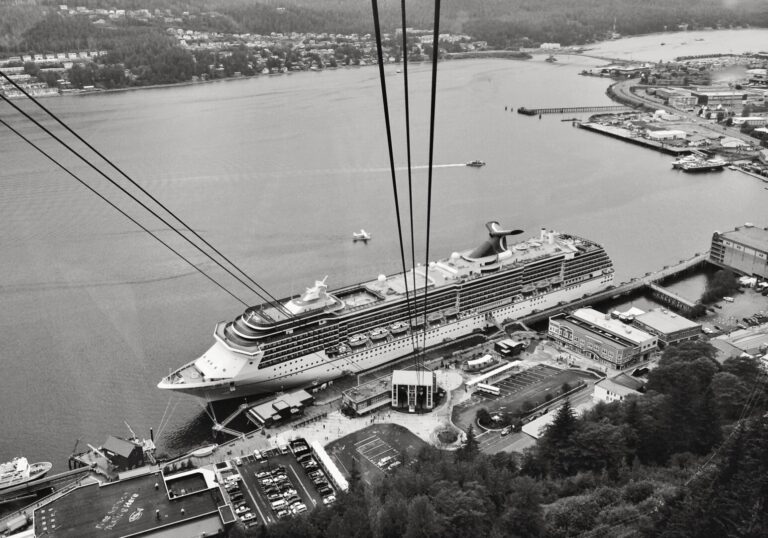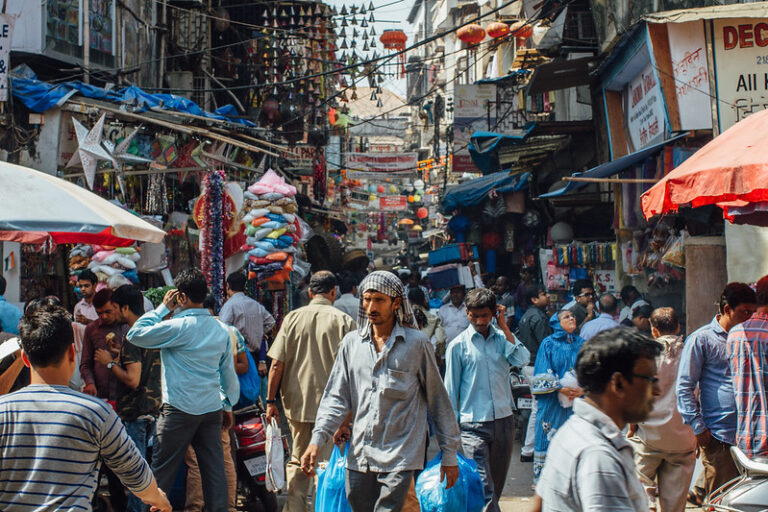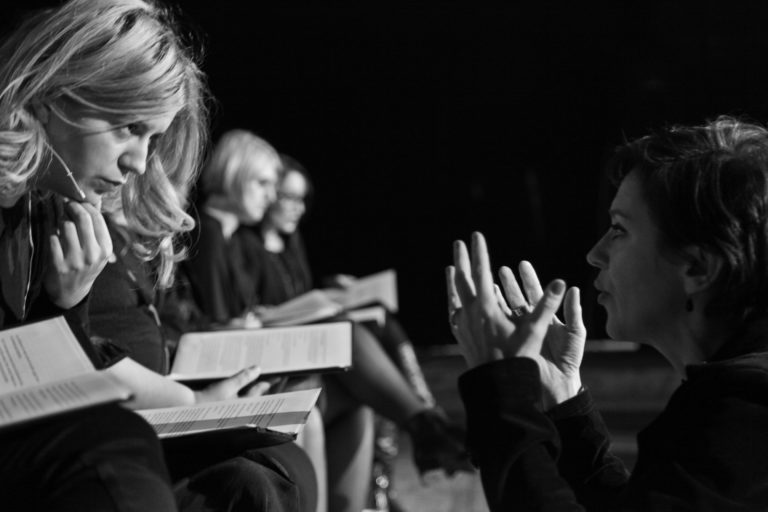This article attempts to offer a systemic discussion about the paradigm shift away from the neoliberal Washington consensus and its ramifications for the worlds of performing and visual arts. The article first provides an overview of discussions of political economy in the arts, in which the typically speculative arguments are contrasted with sociological and historical knowledge which reveals a limit to them. The article then describes contemporary political economy in the era of post-globalization and makes a few proposals on how the arts can think through it.
Keyword: globalization
Toward an Alaskan Critical Regionalist Pedagogy: Mapping the Cruise Ship Industry through Visual Spatial Tactics
In an era when urban space is theorized as an educative science enhancing productivity, business, and management, we witness the emergence of teaching as a dominant productive force for the first time in the history of capital. Given the decisive role of knowledge production in the development of globalized urbanization it becomes vital to identify critical pedagogies that not only engage the production of space but grasp the production of space as pedagogical. To do so, I attend to interventions into regionalist studies and the global city to argue for visual spatial tactics as a tool for a critical regionalist pedagogy capable of linking material, affective, and discursive practices with a placed-based approach to globalized urbanization. Students design a collaborative website documenting the spatial history of cruise ship tourism in Alaska as an argument over the right to the city. Identifying this living process—framing the cruise industry as a constitutive system fusing discourse, space, and identity to restructure history, nature, and region—becomes a means of questioning and revising otherwise generalized theories often brought to bear on tourist landscapes, on Alaska, and on critical pedagogy itself. This case study shows the emergence of the cruise ship city as inseparable from the onset of globalized urbanization and how it, in turn, provides edifying material to mobilize a critical regionalist pedagogy within contemporary forms of educative landscapes.
Manifestations of Microfascism in Spatial Dimensions: A Study on Mumbai’s Public Spaces
Mumbai has an identity that is built around its multicultural, multi-ethnic population, with an enterprising community that prides itself on its resilient spirit. The pluralism that marks the city’s social spaces remained powerful for decades resulting in an immigrant population from all over the country finding its home in this city. When Bombay was renamed Mumbai, it was also a reflection of the altered social sensibilities and the manifestation of an exclusionary politics which began to get reflected in the public spaces of Mumbai. Post globalization and economic liberalization, a hegemonic shift in power centers brought about further negotiations with identities and social spaces, with the new cityscape evolving steadily. The pervasive presence of the politics of othering that marks the contemporary Indian political sphere has its presence felt in Mumbai’s public spaces. The rapid gentrification and erasure of the poor from the public spaces, the expanding privately-owned public spaces and the social interactions that mark the new global city of Mumbai unfold the hegemonic power relations of the new India. This article attempts to imagine the new social narratives and cartographies within the theoretical framework of microfascism as elaborated by Deleuze and Guattari. Mumbai’s public spaces are closely observed and analyzed to comprehend the new dynamics of power at work and its political and social ramifications in relation to the rest of the nation. This paper also seeks to look at the patterns of dissent evolving out of the microfascist spaces of Mumbai.
Review of Crip Times: Disability, Globalization, and Resistance by Robert McRuer (NYU Press)
In his new book Crip Times: Disability, Globalization, and Resistance, Robert McRuer offers his notion of “crip time” as an analytic through which we may critique the spatio-temporalities of austerity, late capitalism, and the cultural logic of neoliberalism. McRuer’s position is that disability is at the core of a global politics of austerity and of neoliberalism. What does it mean that disability is central to a global politics of austerity? For McRuer, it means that thinking about austerity through “crip time” can highlight an ongoing politics of representation of disability. That is, neoliberalism actively produces certain ways of being disabled that are conducive to its continued operation. But, “crip time” points to the ways in which this politics of representation does not fully capture disability. Disability exceeds austerity and neoliberalism. Crip Times, then, offers a critical examination of how disability is represented within the cultural logic of neoliberalism. At the same time, McRuer cautions against, as some past projects in disability and queer theory have done, fully rejecting or embracing the politics of identity, representation, and rights.
Review of The Cultural Production of Intellectual Property Rights: Law, Labor, and the Persistence of Primitive Accumulation by Sean Johnson Andrews (Temple University Press)
Sean Johnson Andrews’ new book is a timely critique of Intellectual Property Rights (IPR) from a critical Marxist perspective. But the true goal of this work goes much deeper into tracing the history of the cultural foundations of the liberal state, private property laws, and labor relations, or what he calls the “reified culture of property.” Regarding the latter, Andrews argues that IPR are only the latest manifestation of this culture. It is an invention functioning like a bandage to hold together the privileged status and power of the capitalist property-owning elite, a power inevitably hemorrhaged by the twin processes of digitization and globalization. In fact, the very existence of IPR, he contends, exposes the fundamental flaws of neoliberal capitalism, presenting us with a unique opportunity. Starting with an examination of IPR, he works backwards to critically interrogate the ideology developed around problematic notions of value creation and the division of labor which both lie at the very heart of the culture of property.
Touring Testimonies: Rebalancing the Public Realm through Human Rights Activism in Asylum Monologues and Seven
In the contemporary globalized world, the life stories of marginalized and vulnerable peoples play a crucial role in attempting to leverage justice. Charities, non-governmental organizations (NGOs), and other bodies concerned to “raise the voices” of asylum seekers, displaced peoples, and victims of abuse flood the internet and other media with written and filmed testimonies in…





